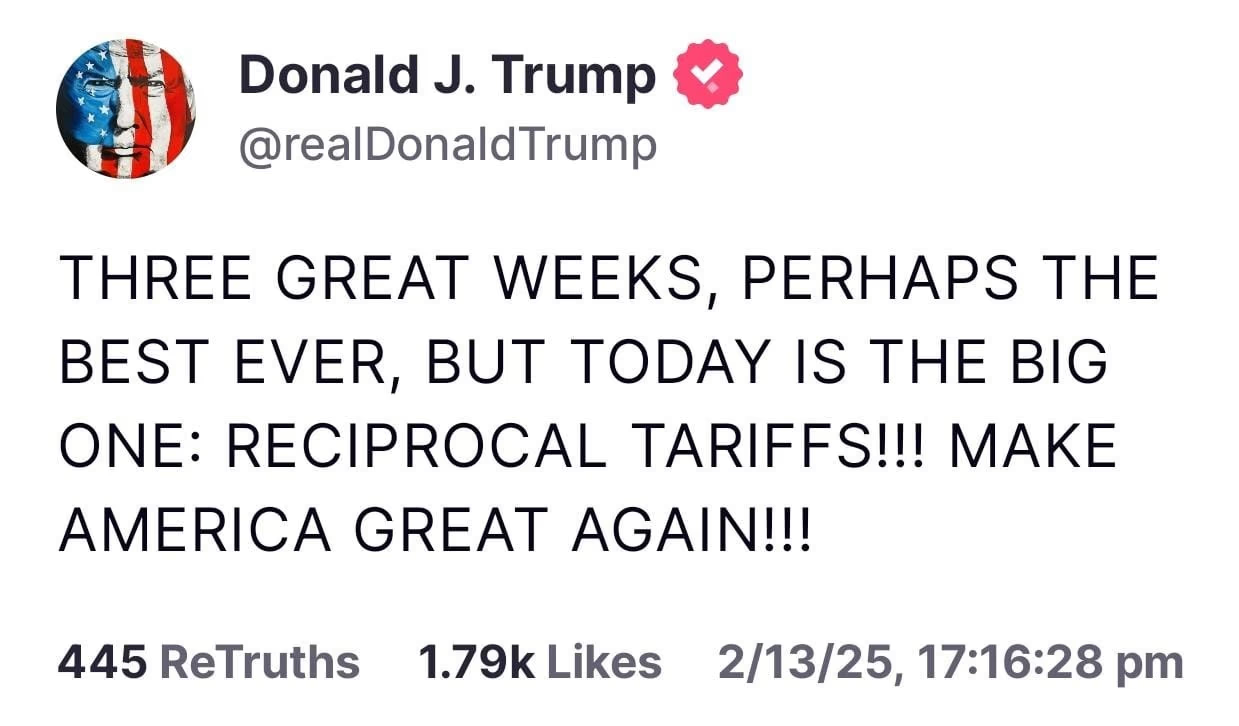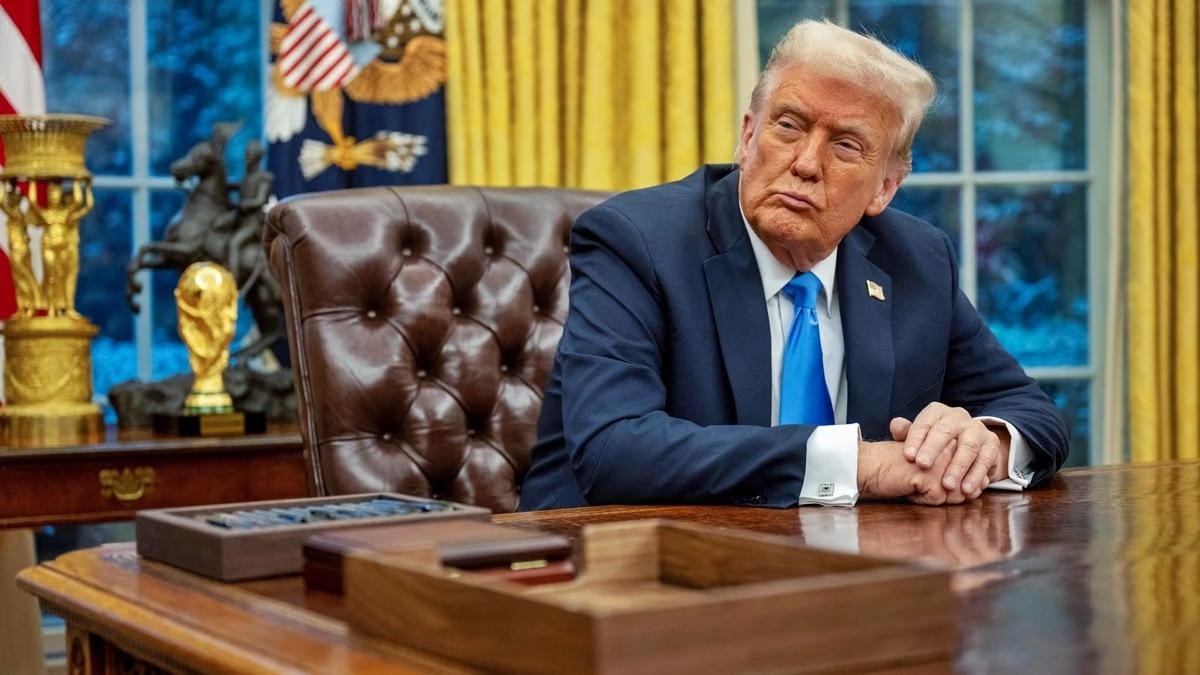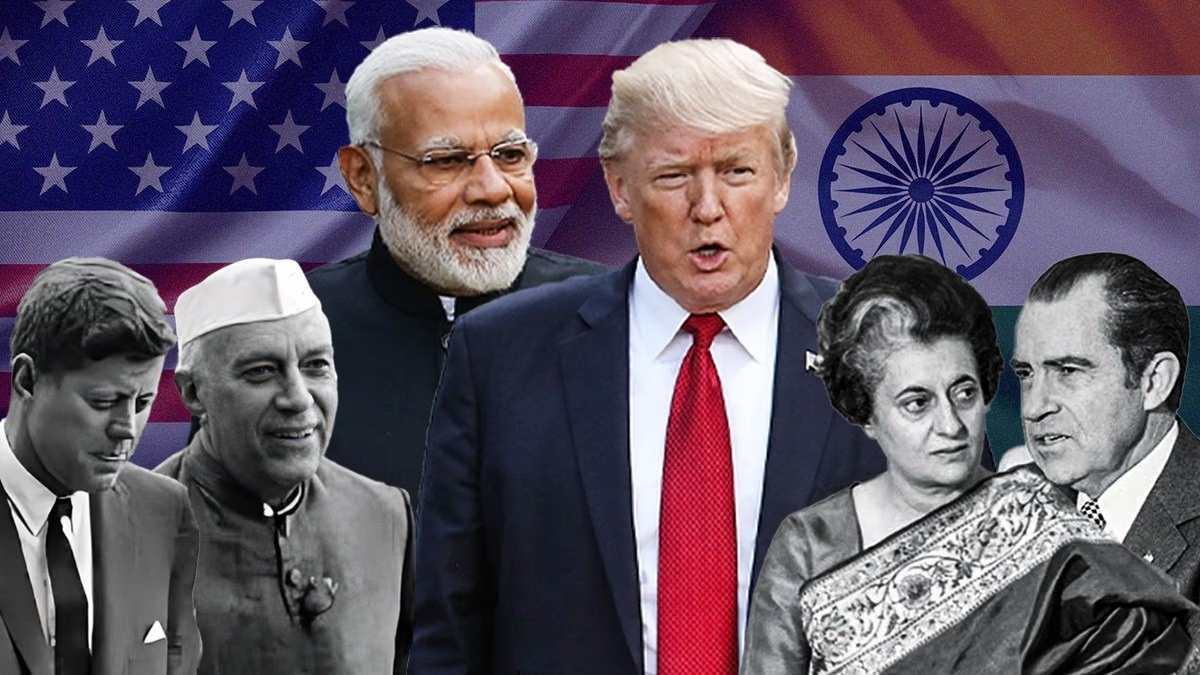Before President Donald Trump of the United States was scheduled to meet Indian Prime Minister Narendra Modi, he stirred speculation with an intriguing post on social media. Alluding to a major move in trade, Trump's post stated, "Three great weeks, perhaps the best ever, but today is the biggest day yet: Reciprocal Tariffs. Make America Great Again." With tariff discussions expected during their meeting, his words ignited global curiosity.
The announcement aligned with Trump's plans to introduce reciprocal tariffs—a policy harmonizing U.S. import duties with those imposed by other nations. This action might further disrupt global trade, alerting India and other key partners. Trump, long critical of perceived unfair trade practices, previously pressured countries to reduce tariffs on American goods.

Source: aajtak
"It's time for reciprocity," Trump emphasized. "You'll be hearing a lot about this term. If they charge us, we'll charge them." He hinted at a comprehensive directive on the policy due by Wednesday or Thursday, stressing every nation will partake reciprocally. This announcement preluded PM Modi's two-day U.S. visit. Trump's administration has repeatedly voiced concerns over India's tariff policies, arguing they impede American imports and fair trade.
Notably, Trump announced a 25% tariff on imports from Mexico and Canada and an additional 10% on Chinese goods. Still, he delayed enforcement on neighboring countries until March 1, following agreements addressing Trump's issues over illegal immigration and drug trafficking.
Arriving in Washington DC on Wednesday (EST) after completing a two-day visit to France, Prime Minister Narendra Modi's trip to the U.S. signifies a pivotal diplomatic engagement. Post Trump's inauguration on January 20, Modi becomes the fourth world leader received by Trump. High-level discussions with Trump are scheduled during his two-day stay, culminating in a joint press conference on Friday (IST) around 2:30 PM. Trade, defense, and strategic cooperation are among anticipated topics for discussion.
Reciprocal tariffs impose taxes on imported goods from other nations. During his campaign, Trump pledged, "An eye for an eye, a tariff for a tariff, identical in amount." He mentioned an announcement with detailed plans on tariffs forthcoming by Tuesday or Wednesday, asserting mutual application from all countries. Experts explain the strategy is to elevate import tariff rates mirroring those imposed on American exports. Adjusting according to diverse products, this could increase the U.S. average tariff rate by about two percent, aligning with global tariffs.




